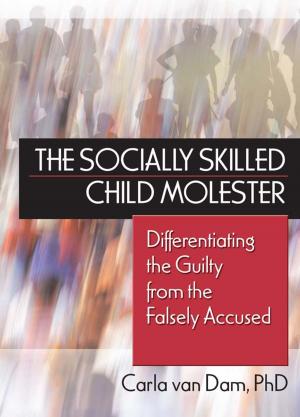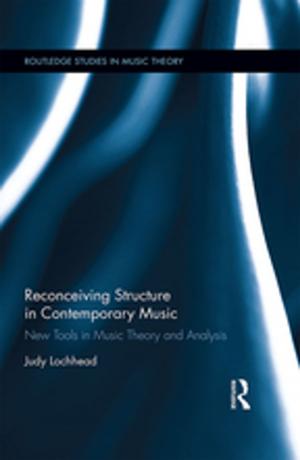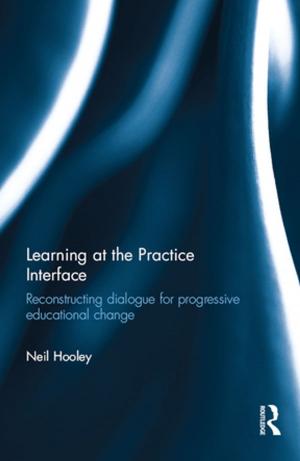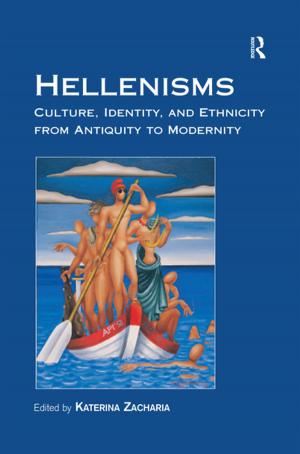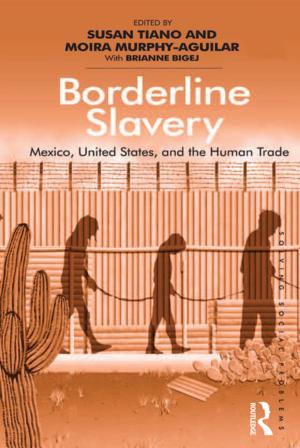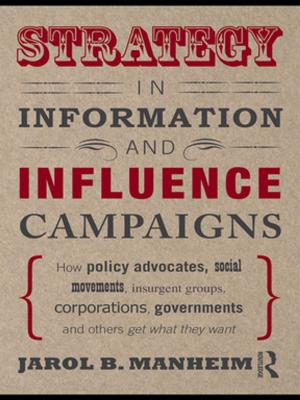Multimodal Pedagogies in Diverse Classrooms
Representation, Rights and Resources
Nonfiction, Reference & Language, Language Arts, Literacy, Education & Teaching, Educational Theory, Multicultural Education| Author: | Pippa Stein | ISBN: | 9781134144440 |
| Publisher: | Taylor and Francis | Publication: | November 7, 2007 |
| Imprint: | Routledge | Language: | English |
| Author: | Pippa Stein |
| ISBN: | 9781134144440 |
| Publisher: | Taylor and Francis |
| Publication: | November 7, 2007 |
| Imprint: | Routledge |
| Language: | English |
Multimodal Pedagogies in Diverse Classrooms examines how the classroom can become a democratic space founded on the integration of different histories, modes of representation, feelings, languages and discourses, and is essential reading for anyone interested in the connection between multimodality, pedagogy, democracy and social justice in diverse classrooms.
Pippa Stein combines theory with material taken from post-apartheid classrooms in South Africa where students from different language and cultural backgrounds negotiate the ongoing tensions between tradition and modernity, Western and African intellectual thought, as well as the apartheid-past of their parents, and their own aspirations for the future. This insightful book argues that classrooms can become ‘transformative’ sites in which students can develop curricula and pedagogies which speak to the diversity of global societies, and looks at:
- How multimodality can be used to promote social justice and democracy in diverse classrooms;
- The forms of representation through which students make meaning in classrooms;
- How those forms contribute to the building of democratic cultures;
- The cultural resources available to students, and how they are used for learning;
- Difference as a productive energy for learning.
Dealing with issues such as democracy, politics of difference, diversity, multicultural and multilingual classrooms, this book is as pertinent to readers across the globe as it is to those in South Africa, and will be invaluable and fascinating reading for anyone working or interested in this field.
Multimodal Pedagogies in Diverse Classrooms examines how the classroom can become a democratic space founded on the integration of different histories, modes of representation, feelings, languages and discourses, and is essential reading for anyone interested in the connection between multimodality, pedagogy, democracy and social justice in diverse classrooms.
Pippa Stein combines theory with material taken from post-apartheid classrooms in South Africa where students from different language and cultural backgrounds negotiate the ongoing tensions between tradition and modernity, Western and African intellectual thought, as well as the apartheid-past of their parents, and their own aspirations for the future. This insightful book argues that classrooms can become ‘transformative’ sites in which students can develop curricula and pedagogies which speak to the diversity of global societies, and looks at:
- How multimodality can be used to promote social justice and democracy in diverse classrooms;
- The forms of representation through which students make meaning in classrooms;
- How those forms contribute to the building of democratic cultures;
- The cultural resources available to students, and how they are used for learning;
- Difference as a productive energy for learning.
Dealing with issues such as democracy, politics of difference, diversity, multicultural and multilingual classrooms, this book is as pertinent to readers across the globe as it is to those in South Africa, and will be invaluable and fascinating reading for anyone working or interested in this field.


